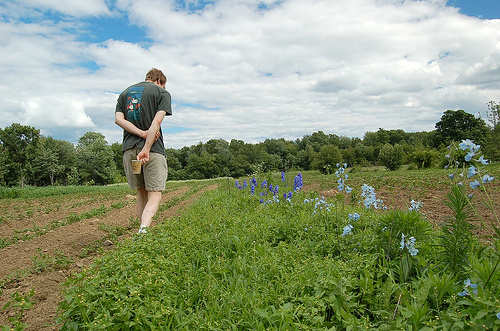No need to rush
 There are times when procrastinating might be a good idea. Not because you are avoiding doing something – though we are all guilty of that at times. But it can be useful when we are trying to figure out the best course of action in a complex situation, or where we are trying not to make critical errors.
There are times when procrastinating might be a good idea. Not because you are avoiding doing something – though we are all guilty of that at times. But it can be useful when we are trying to figure out the best course of action in a complex situation, or where we are trying not to make critical errors.
There is a lot of pressure in modern life to respond immediately to requests. Email is constantly with us, social networks like Facebook and Twitter ping us with updates – even when we are trying to sleep unless we are disciplined about switching these functions off (Apple have recognized this and seem poised to add a ‘Do Not Disturb’ mode to the next version of the iPhone operating system). Business supply chains rely upon just-in-time management techniques and delivery windows which do not have much margin for lateness. Fast food chains will give you your fix in under two minutes. Even job contracts are getting shorter and focused upon a core set of deliverables – those and those alone, thank you very much – “Now, go and get on with it, and woe betide you if I catch you fiddling around with anything else when you are supposed to be doing this job.”
All this pressure for immediacy. Yet, we also hear things like ‘act in haste, repent at leisure’. We also see online transactions, or credit contracts that have a ‘cooling-off period’ to help us to take another look in the ‘cold light of day’. Maybe creativity also needs time, and perhaps distraction to enable the fusing of new combinations and ideas. Ernest Hemingway once told a fan that the best way to write a novel was to first clean the fridge. And when you plant a seed, you don’t dig it up every five minutes to see how it is doing. Doing that only damages the process, or at least delays it. Some things operate on a different time scale altogether. Immediacy is not a good fit.
In Wait: The Art and Science of Delay, Frank Partnoy argues that too many people fail to recognise that success depends on knowing when to delay, and for how long. Comedians get this, as do people who make a living through public speaking. Sometimes, doing things right is more important than doing it first. Just ask Apple about the iPad and then see what Microsoft has to say about the Tablet computer they had out years earlier.
Delaying also works where critical errors need to be avoided. Airline pilots and surgeons use checklists, even when they have done the procedure many, many times before. The list slows them down and helps them to work methodologically, avoiding the taking of potentially time-saving shortcuts that could lead to catastrophic error, whilst improving quality and consistency of service at the same time.
The wisdom comes from recognising when to think and act quickly (e.g. delaying paying that credit card bill is probably just going to make things worse), and knowing when to act and think slowly. Partnoy thinks that this is a skill that can be learned, and I agree. It also ties in nicely with my to-do list post here.
Speed for its own sake can lead down dangerous paths. The pleasure gained deciding and executing an action can bring a sense of closure and can even be aesthetically pleasing. But the secret of modern life and how are brains have evolved to function is that we need a combination of fast and slow. Deadlines are useful, but there is value in dawdling too.
Dr Sarb Johal is the Director of Equanimity Limited and Associate Professor of Disaster Mental Health at Massey University’s Joint Centre for Disaster Research. He spends quite a lot of his work time providing advice to the Ministry of Social Development and CERA on aspects of recovery from the Canterbury earthquakes. When not working, Sarb spends a bit of his time writing and running, though not at the same time. He has completed numerous half-marathons, 4 international marathons and 1 ultra-marathon from 2010-2012. He is a certified Leader in Running Fitness, and is also training to be a Personal Trainer.
You can read more of his thoughts on health, wellbeing and mental fitness at completecoach.wordpress.com
loading...
loading...
Tags: slow



Voices of our community